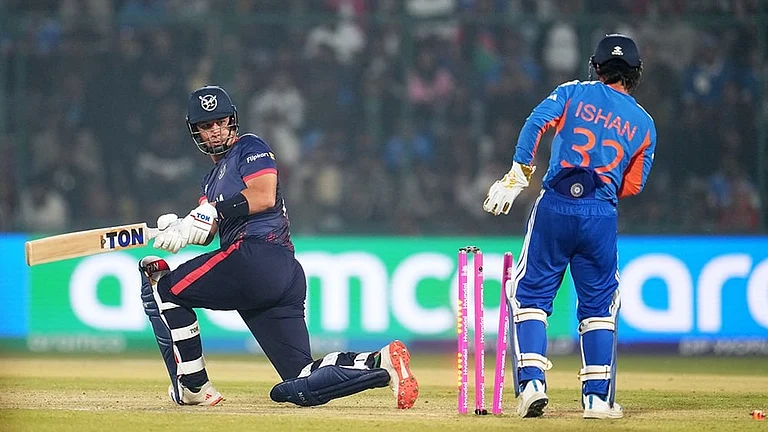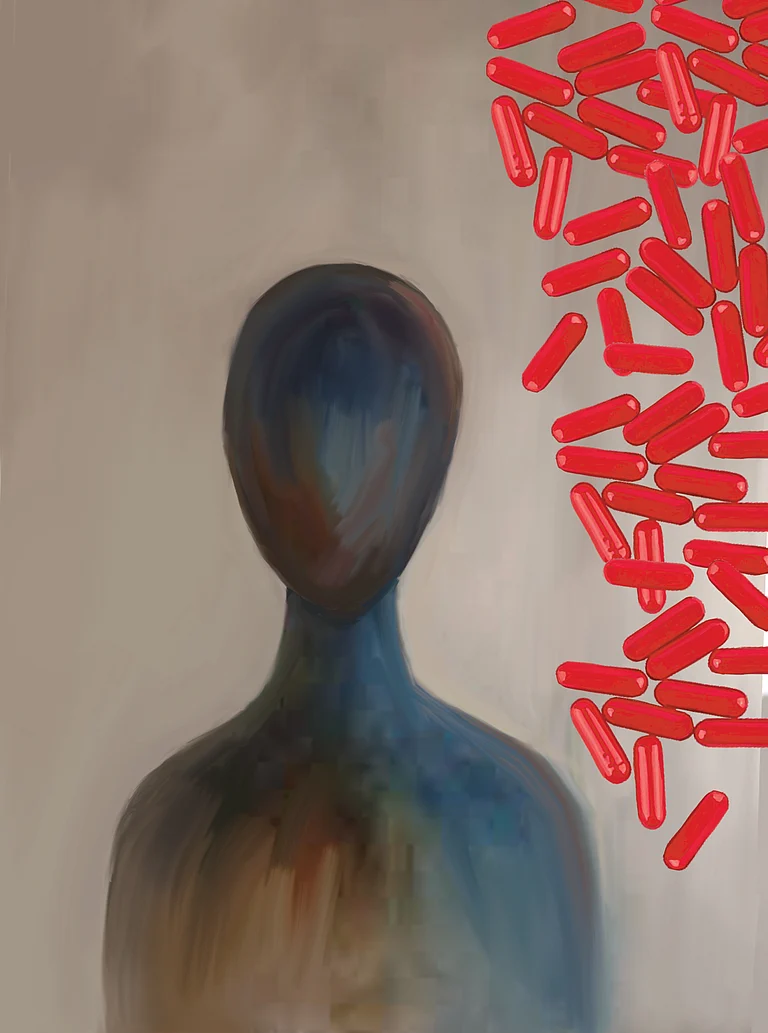No matter how photogenic a baby may be, the possibility of a mother lurking in the shadows to keep them quiet, still and out of their own drool is almost absolute. For every family album that I sift through I see how motherhood, in all its glory, is so prone to making placeholders out of women. Good, sturdy accessories to latch the babies onto. The Victorian era baby portraits even named their human props, as “hidden mothers photography”. A Google Image search of the term would douse all peculiarity.
Here’s the visual archive of a marriage and a motherhood, where a woman struggles to locate a photo to call her own. And in Virginia Woolf’s prose, “whether it matters for ages or only for hours, nobody can say”.

Lily, the eldest of 10 siblings of the Niravath household, never held a visual space to call her own in her family’s albums. Her only photograph, taken in a Kottayam studio in 1969, existed for the purpose of being shown to her prospective groom. She was 19 and in her second year of Bachelor degree in Sociology when the engagement was announced.

Joseph’s Canon film camera, a rare possession in the 1970s, immortalised his 52-year-long marriage with Lily. His passion for photography captured the coy warmth between two almost strangers, who settled in the quaint, unfamiliar town of Tirupattur in Tamil Nadu after their wedding and Lily’s graduation. She became Joseph's first muse and the camera their constant companion.

Her desire to be photographed more often was an entirely new experience to her. She was cared for and appreciated in Joseph’s lens but these newfound ways of seeing were interrupted shortly. The pair went on to have three children. A marked visual shift crawled in the subjects of Joseph’s photos. Over the next five years, Lily and Joseph disappear altogether from their own archive.

Isn’t taking up space on the camera film the birth-right of a child? Lily vividly recalls the embarrassment, shame, and hesitance of being photographed alone or without her children. She seeps into the background, quite literally. Almost as if her presence is permissible only when she exists as a wife, mother, and caregiver. It attests to the paucity of the ‘individual’ woman in visual histories.

Between children’s birthdays, baptisms, weddings, and welcoming their three grandchildren, it takes a good while, almost three decades, before Lily marks a reappearance. This time around, it’s an unapologetic comeback but the moments to be captured together are fleeting. Lily holds the grief of not having documented enough between them in over a five decade-long marriage.

What if Lily's pregnancies had been delayed? Would the two have had the time and space to capture Lily, alone, at the epicentre of the frame? Would she have indulged in visual merrymaking, as a muse without drowning in the weight of parental guilt?
On February 19, 2021, Joseph passed away due to a brain stroke. For Lily, these albums are his most sacred, tangible remains that she can hold onto and keep close as a material form of memory. She says, “His camera made many lives around him immortal and I’ll live the longest of them all.”





















